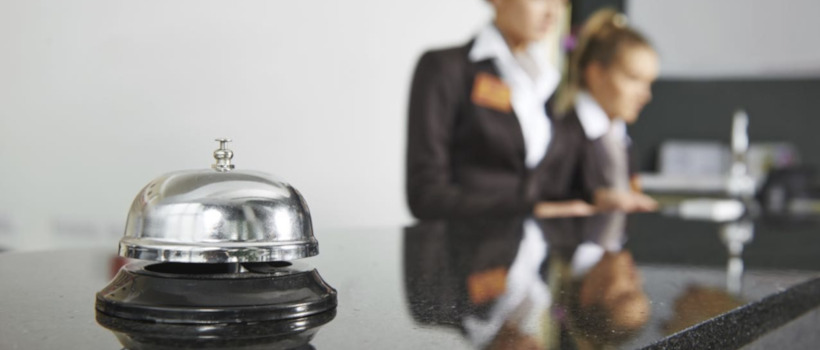In our blog we have been talking about SOPs for a year, explaining from what they are to how they should be evaluated. We talk about them once again in this post however, we will focus specifically on the SOPs of the reception department.
The reception department is the visible face of the hotel. In addition to being the department that supervises the available rooms, where reservations are made, where departures are recorded and where rooms and keys are assigned, it is the first department that the client contacts (through the reservation) and for this it is the hotel’s cover letter. The functions that we have just developed in the department indicate that it is the department that interacts with the client the most (doubts, complaints…) and the department that gives the first and last impression to the client (with check-in and check-out).
Based on the hotel factory experience, a reception SOP should take into account certain aspects. Here are a number of tips for developing a reception SOPs:

-
Name of the client. Staff must use the customer’s name during interactions with the customer, even more so if the customer is repetitive.
-
Wording. Depending on the type of customer, the staff should contact the customer in a more formal or informal manner. The SOP must collect the different approaches according to the different segments of the hotel.
-
Welcome and farewell. As discussed above, it is the department that gives the first and last impression to the customer, so the steps described in this process must be accurate. It should be specified how the front desk staff should welcome and how to say goodbye to the client. In the farewell it is important to ask the client to participate in the main online reputation channels in case the latter is satisfied with the hotel.
-
Attitude. The SOP should indicate that the front desk staff should always make eye contact and smile at the customer as much as possible. It is an important aspect to highlight in SOPs because it is something that seems obvious but it is often lacking.
-
Feedback. It is important to collect information about the customer and their hotel impressions to know what to offer them and personalize their experience, as well as knowing what should be improved or what should be continued to be done. Therefore, the SOP should include how staff should request feedback from guests during different interactions and what to do with this information afterwards.
-
Situations with the customer. Certain situations should be developed where it is explained how the receiving staff should react to such situations with the customer. For example, the staff’s response to a complaint about the room. This way, employees will have a standardized response to the different possible situations. It is recommended to make an accurate list of the most common customer situations, and for less common situations establish a base response (for example: “Let me check with my director, Mr. X”).
-
Anecdotal tips:
-
Scanning documents. The front desk staff should know how to request and how to scan customer documentation. The SOP must indicate that under no circumstances photocopies of the customer’s documentation can be made or kept.
-
Verification. Throughout customer interactions, staff must verify certain aspects such as room type, payment method, booking name and more.
The hotel factory has worked on different SOPs projects, both in urban and holiday hotels, perfecting the methodology and the final result. All this allows us to adapt to the demands and needs of our customers and stand out for a differential approach:
-
Visual format. Photos, icons and colors predominate so that the employee has a friendly reading and the message is transmitted correctly.
-
Customer-focused. SOPs focus on the customer journey, including useful phraseology and tips for each type of client.
-
Simple language. The wording of the steps will be written in a simple language, understandable to any level of knowledge and experience of the employees.
-
Induction, training and control tool. The SOP serves to induce new employees, to train current employees and to establish control over the standardization and quality of services.
- Basic steps. The SOP focuses on the basics of the process.
If you need more information about the new concept of SOP’s that we have developed in the hotel factory, do not hesitate to contact one of our offices, from which we can advise you and offer solutions adapted to your needs.







